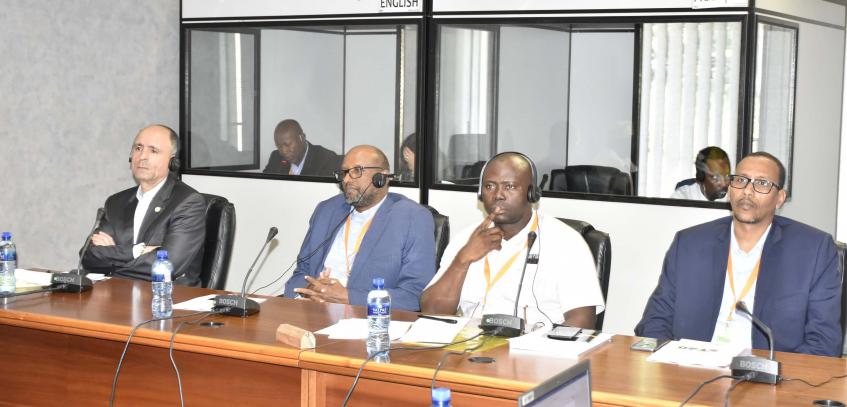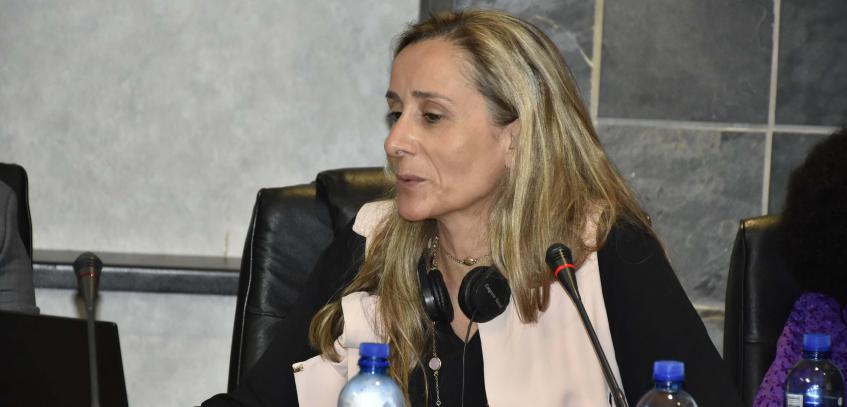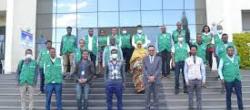The United Nations High Commissioner for Refugees (UNHCR) has appealed for support and commitment from Africa, to solve Statelessness on the continent saying, “we’re solving a technical problem, but we need political will to do so.”
At the Sitting of Permanent Committees, the Committee on Cooperation, International Relations and Conflict Resolution engaged with the UNHCR to chart a way forward. Members of the Pan-African Parliament (PAP) expressed their commitment to the crafting of a Model Law on the subject of ‘Statelessness in Africa.’
Committee Chair, Hon. Kone Aboubacar SIDIKI said the phenomenon presents a unique challenge which has compelled the Committee to work with legal experts to address it at the earliest convenience.
In consideration of the facts that the concept of statelessness is not well-known, and the level of legal complexity, the UNHCR’s Ms. Emmanuelle MITTE presented a definition, legal complexities, consequences and solutions for statelessness on the continent.
UNHCR presented the case of Mary who has Liberian parents, but was born in Ghana in 2003. According to Article 20.1 of Liberian nationality law, a person born outside of Liberia can only be considered a Liberian citizen if his or her father was born a citizen.
According to the Ghanaian Citizenship Act, a person is a citizen of Ghana by birth if he was born in or outside Ghana and at the date of birth one of his parents or grandparents was a citizen of Ghana.
Mary’s father is unknown, and without any documentation to proof the citizenship of her father, she is therefore considered stateless.
The UNHCR defines a stateless person as “that who is not considered as a national by any State under the operation of its law. Statelessness poses severe threats to a one’s basic human rights, but also presents national security risks, as observed in countries such as Cote D’Ivoire and the Democratic Republic of Congo”.
Ms. Emmanuelle MITTE informed the Committee about the international legal instruments that are available to parliamentarians to support people who are stateless.
The United Nations have two treaties, including the 1954 Convention relating to the Status of Stateless Persons, a multilateral treaty that aims to protect stateless individuals, and the 1961 Convention on the Reduction of Statelessness, a treaty focussing on the prevention of statelessness through legal safeguards.
Legal progress has also been made by the African Union (AU). In 2014, the AU Initiative on Human Rights published a study on the key findings of statelessness in Africa and in 2016, the AU raised statelessness with regional economic communities.
This awareness led to the drafting of the AU Protocol on the ‘Right to a Nationality’ and the ‘Eradication of Statelessness.’ Although it has been drafted, it has not yet been adopted.
Hon. Senator Ahmad Ibrahim LAWAN from Nigeria and Hon. Loide Lucky Shoopala KASINGO from Namibia supported the development of model legislation to reduce statelessness in Africa admitting that it was long overdue. On the other hand, Hon. Jaynet KABILA from the DRC spoke in favour of a comparative study of current citizenship legislation on the continent to arrive at a clearer picture for such a law.
This sitting was observed by a group of students from the Clairefontaine International University in Cote D’Ivoire. Ms. Kamagate MASSANI; one of the students, presented illiteracy as a key factor to consider in statelessness, sharing examples from her own village where children are not registered at birth because their parents cannot read or write.
Hon. Senator Abdoullahi Ibrahim ALI said model legislation must consider the traditional practices of nomadic pastoral communities, while some MPs expressed concerns on in-country data on statelessnes















